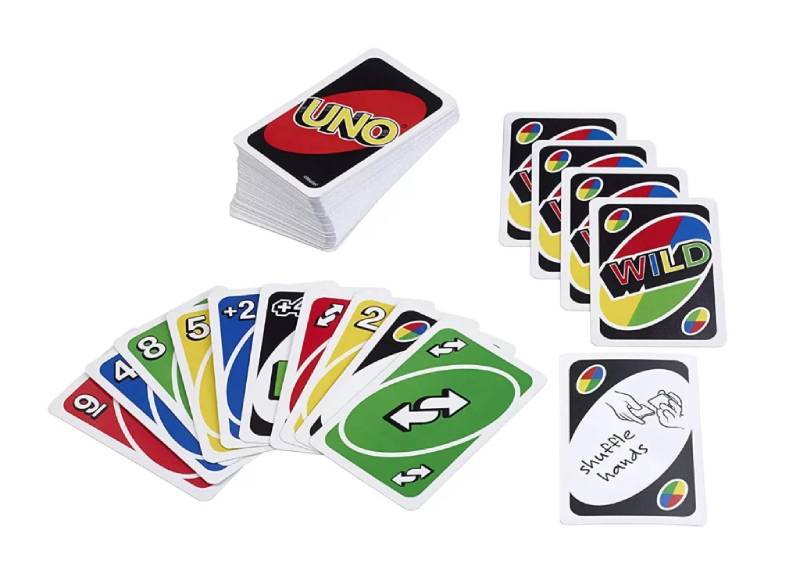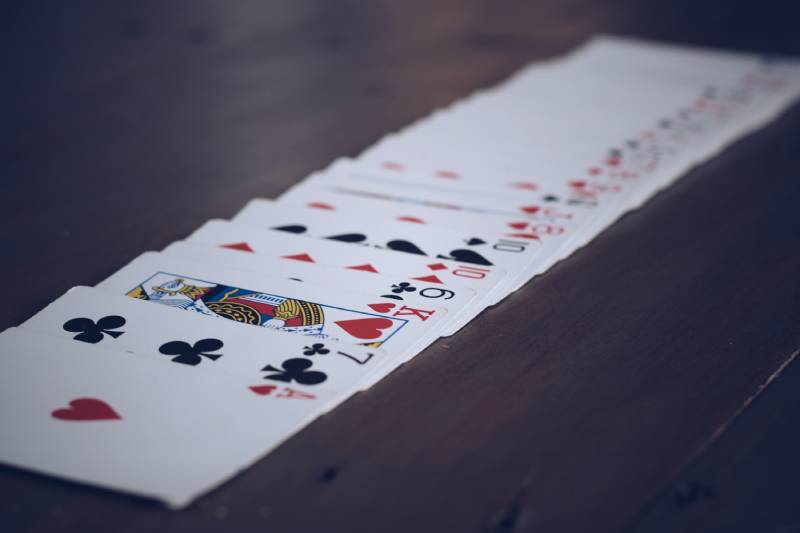10 Classic Card Game Alternatives to UNO!
Most people can’t get enough of a game of Uno, but what happens when you’re all Uno-d out? Are there any other card games that are as entertaining as Uno? Yes, at least ten classic card games are worthy alternatives to Uno.

Ten classic card game alternatives to UNO
- Push
- Crazy Eights
- Kariba
- Phase 10
- No Thanks
- Go Fish
- Skip-Bo
- Rummy
- Monopoly Deal
- Bridge
Each of these card games is enjoyable for the entire family, friends, and colleagues. One of the card games listed above is a good option if you’re looking for a way to pass the time.
Read More: 45 Casino Theme Party Ideas
What Card Games are Good Alternatives to UNO?

The following are ten classic card games that everyone should have in their board game collection:
Push
Push is a game about “pushing your luck.” Players attempt to increase their points in the game by drawing cards from a main shared deck of cards. The chosen card must go on one of three stacks. The challenge is that each of the three stacks can only have one card number (from 1 to 6) and one card colour (no duplicate numbers or colours among the stacks).
You can draw, stop, or bank using the playing dice when it is your turn to play. If you get a draw, you turn over the card on the shared deck and choose which stack of cards to place it on. If you decide to stop, you select one of the stacks of cards and place them all into your hand of cards (known as a “bench”). The next person selects a stack, and so on. If you bust, you won’t be able to pick which stack you pick up.
Crazy Eights
Crazy Eights is a 52-card deck game suitable for players aged four and up. The goal of Crazy Eights is to get rid of all of the cards in your hand. Whoever gets rid of all of his or her cards wins. The first player to run out of cards wins the value of all the other players’ cards. Five cards are dealt face down to each player. The deck’s balance is placed in the centre of the table and is referred to as “stock.” The top card is turned over and placed in a separate pile, referred to as the “starter” card.
In the same way, in Uno, each player places one card face up on the starter pile. The card must be the same colour or number as the previous card in a pile. All eight cards are “wild.” Eight cards can be played at any time, with the player deciding which suit to play. Following that, players must play a card from the same suit or an eight.
Kariba
Kariba is a card game for two to six players aged seven and up. The game revolves around savannah animals thirsty for a drink. All the animals want to drink, but they are scared of other animals (the players). The player (or animal) who scares away the most opponents wins.
The game is played with Kariba playing cards. Each player is dealt five cards, with the balance placed in the centre. The game board is located in the centre of the table.
First, players place one or more cards of the same animal in the positions marked 1 through 9 on the board. If you have one or more of the same animal’s playing cards, the animal with the fewest cards chases it. All of the cards from the weaker animal are won by the player. When you scare an animal away, you take all of the playing cards off the board and place them face down in front of you.
Each card collected is worth one point, and the player with the most points wins.
Phase 10
Phase 10 is a Rummy-style game with a unique twist. The goal of this game for 2 to 6 players is to complete all ten phases round by round. At the end of the game, the number and type of cards remaining are used to calculate their final point total. The player with the lowest score is the winner.
Cards 1–12 in red, green, yellow, and blue comprise Phase 10 playing cards, and two cards represent each number. The deck includes eight “wild cards,” which can substitute for any card colour or number. There are also four skip cards in the deck that players can use to ensure that another player does not take their turn.
The following are the ten phases that a player must complete in this order:
- 2 sets of 3
- 1 set of 3 and 1 run of 4
- 1 set of 4 and 1 run of 4.
- 1 run of 7.
- 1 run of 8.
- 1 run of 9.
- 2 sets of 4.
- 7 cards of one colour.
- 1 set of 5 and 1 set of 2.
- 1 set of 5 and 1 set of 3.
If a player cannot complete a phase in a round, the player must repeat the phase in the next round. Sets are collections of the same numbers, whereas runs are collections of sequential numbers such as 1, 2, 3, 4, 5, and so on.
No Thanks
No Thanks is a game in which you either accept or decline a card. The game pack contains 33 cards numbered 3 to 35 and 55 playing chips.
The rules of No Thanks are straightforward. To begin the game, a card is placed face up in the centre of the table. When playing, each player has two options. They can either pick up the card (and any chips already played), pick up the card (and any chips already played), and turn the next card into a pile. Players find the choice difficult because the game’s goal is to have the lowest possible score.
Go Fish
A standard 52-card deck is used to play Go Fish. The goal is to collect as many four-of-a-kind card sets, known as “books,” as possible. Each player is dealt 7 days for up to 3 players, and each player receives 5 cards if there are 4 or 5 players. The remaining cards are placed face down in the centre of the table.
Each player takes turns fishing for cards. A player will address another player by name and request a specific rank of card. For example, he/she could request all of another player’s kings. The player fishing for cards must have at least one of the requested cards. If the opposing player has those cards, they must be turned over. If not, they say, “go fish,” and the player who made the request must draw a card from the top of the stock card pile and add it to their hand.
The game is over when all thirteen sets of four-of-a-kind cards are matched. The player with the most sets (or books) wins the game.
Skip-Bo
Skip-Bo is a card game for 2 to 6 players, similar to Solitaire. The game’s goal is to get rid of your cards while challenging other players to get rid of theirs. A Skip-Bo deck contains 144 cards numbered 1 through 12, and there are also 16 Skip-Bo “wild cards” that can be used to replace any other card as needed. Each player is dealt an equal number of cards ranging from 10 to 30, and each pile is referred to as a stockpile.
Players must attempt to play every card in the stockpile in numerical order. The colours of the cards in the game have no bearing or significance. The first person to complete this task wins.
Rummy
Rummy is a card matching game. The dealer distributes cards to each player. Each of the two players receives ten cards. When three or four people play, each receives seven cards. If there are more players, each receives 5 cards. The stock cards are the leftover cards placed face down in the centre of the table. The top card is turned over and placed beside the stockpile to begin the discard pile.
The goal of the game is to match sets of cards that are either three of a kind or four of a kind. They can also form sets of three or more cards that form a sequence of the same suit.
Monopoly Deal
Monopoly Deal is a card-based version of the classic board game Monopoly. Players must collect colour-coded sets of properties, and players can also charge other players to rent and earn or trade properties. When players have the appropriate Action card, they can also steal property or demand money.
Bridge
Bridge is a popular card game that has been around since the 1930s. This card game is intended for players aged 14 and up and is designed for four players. Each player is dealt 13 face-down cards.
The main goal is to earn points by making bids or defeating the opponent’s bid. The team wins the game with the most points. When the cards are dealt, the bidding begins. Each player makes a decision, such as whether to pass, bid, double, or re-double. If a player does not want to bid, double, or re-double, he or she passes, and the dealer deals a new round.
All of the games listed above are excellent classic alternatives to Uno. If you haven’t played them before, I strongly advise you to do so at least once.
100% up to €500 or 5 BTC



